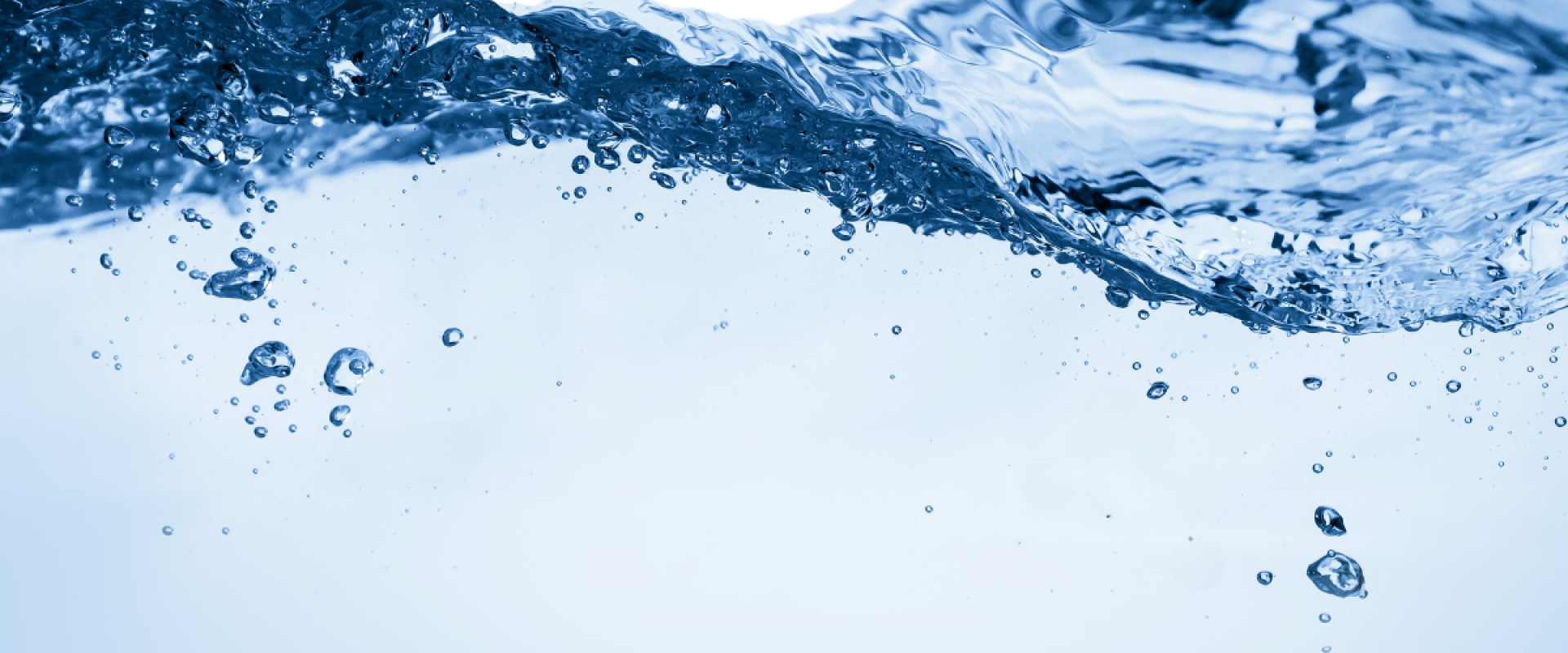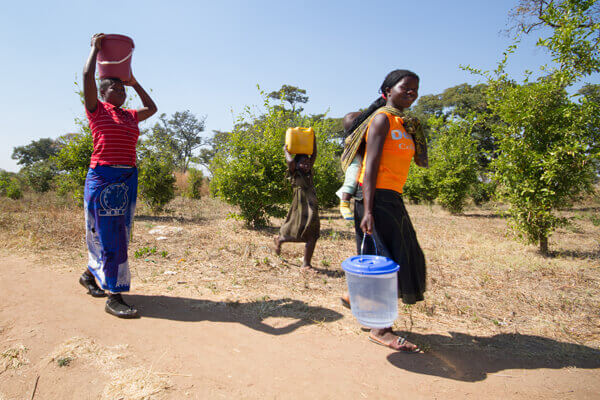
World Water Day 2025

Sustainable Development Goals (SDG) can help with global water sustainability for World Water Day 2025.
As World Water Day 2025 approaches, it is important to think about how important water is and how the Sustainable Development Goals (SDGs) can help solve the world's water problem. This day, which is celebrated every year on March 22, brings attention to how important water is and how it affects our health, the world, and our way of life.
The Earth is mostly made up of water. Despite this, only 2.5% of it is new, and less than 1% is easily accessible and safe for humans to use. Because the world's population is growing and climate change is making things more vulnerable, making sure everyone has access to water is a very important issue.
One of the main goals of the Sustainable Development Goals set by the United Nations is to make sure that everyone has access to water and sanitation and that they are managed in a way that doesn't harm the environment. By 2030, the SDGs will have made the future better and more stable for everyone around the world. Today, World Water Day 2024, is a chance to think about these big goals and see how far we've come.
Looking at the Water Crisis
Even though there is plenty of water, about 2.2 billion people around the world do not have access to clean drinking water. The current situation is made worse by climate change, population growth, pollution, and insufficient infrastructure. This is why effective water control measures need to be put in place.
The trouble with the water can't be seen as a separate issue. Concerns about health, food stability, energy production, and environmental protection are just some of the other issues that this phenomenon is linked to. Malnutrition, the spread of diseases, and the worsening of poverty are all linked to bad water quality and bad sanitation habits.
Why the Sustainable Development Goals (SDGs) are important
The 17 global goals that make up the SDGs were created in 2015 and are meant to be a "guide to attain a superior and enduring future for everyone." Clean water and sanitation are very important, and SDG 6 puts a lot of stress on them. The statement recognizes how important safe water and cleanliness are for people's health, the health of the environment, and the economy. It also talks about the importance of sustainable water resource management.
As the date for the Sustainable Development Goals (SDGs) in 2030 draws near, World Water Day 2024 becomes even more important. This is a reminder of how important it is for all of us to protect water supplies so they can be used for a long time and make sure everyone has access to clean, easy-to-reach water.
World Water Day 2025 will use the Sustainable Development Goals.
The celebration of World Water Day 2025 is a unique chance to highlight how important water is to the Sustainable Development Goals (SDGs) and how these goals are bound together. One way to use the Sustainable Development Goals (SDGs) to improve the world's water situation is through a variety of methods, such as:
Supporting Integrated Water Resources Management (IWRM): IWRM is the planned development and management of water, land, and other resources that are connected to them. The goal is to improve economic and social well-being in a fair way while protecting ecological systems for the long run.
An important part of fixing the water problem is putting a lot of money into infrastructure. This includes building water supply and sanitation facilities as well as better irrigation systems for farming.
Improving Institutional Capabilities and Policy Frameworks: For water management to work well, institutions and policies need to be strong. This includes making sure that laws about water quality are followed, that methods that use less water are promoted, and that policies about water take into account the needs of the most vulnerable people.
Facilitating Collaboration and Participation: In order to reach Sustainable Development Goal 6, many groups must work together. These groups include local communities, businesses, civil society groups, and government agencies. Collaboration can help people come up with new ideas and make water management methods more inclusive and long-lasting.
A lot of people don't know how bad the global water problem is or what might happen as a result. This can be fixed by improving education and raising awareness. Campaigns to teach people about water issues and encourage safe water use are very important for getting people to work together to solve water problems.
How we got to World Water Day 2025 and what happened afterward
It's important to think about what we can do as individuals to help make water preservation better before World Water Day 2025. There isn't a huge problem with the water issue. Still, solving this problem requires everyone to work together and be completely committed.
People can make a difference by using water more efficiently, reducing waste, and actively supporting measures that will change things for the better. When governments make policies, decide how to spend money on building infrastructure, and enforce rules, they can give water issues top importance. Business organizations can use methods that use less water, support improvements in water technology, and take an active role in water stewardship efforts.
World Water Day 2025 is a time to both think about water issues and take action to solve them. This is a chance to learn more, become more aware, and have a good effect on efforts around the world to reach SDG 6. The resources that are related to the Sustainable Development Goals (SDGs) are very useful for dealing with the water problem. By using these tools, we can make big strides toward making sure that everyone has access to clean water.
Water is an important part of what keeps life going, keeps ecological systems healthy, and helps the economy grow on our world. As World Water Day 2024 approaches, it is important to remember how important water is and how hard it is for many people to get it.
The Sustainable Development Goals (SDGs), especially SDG 6, give us a complete plan for how to deal with these problems. They are a reminder of how world problems are linked and how important it is to find solutions that cover everything. We are moving toward a sustainable water future by using the tools that are linked to the Sustainable Development Goals (SDGs).
The 2025 World Water Day will be a big step forward in this effort. For this day's celebration, let us once again pledge our support for protecting water sustainability, making the best use of Sustainable Development Goal (SDG) resources, and working toward a world where everyone has access to safe, clean water. We are the ones who start the process that will lead to 2030 and beyond. When we work together, we have the power to make things better.
Here's a look at the themes for World Water Day, starting from its inception:
| Year | Theme | Awareness Topic |
|---|---|---|
| 1993 | Water for Cities | Access to clean water in urban areas |
| 1994 | Caring for our Water Resources is Everybody's Business | Importance of collective responsibility for water resources |
| 1995 | Women and Water | Gender inequality and the role of women in water management |
| 1996 | Water for Thirsty Cities | Addressing water scarcity in urban environments |
| 1997 | The World's Water: Is there enough | Global water availability and sustainability |
| 1998 | Groundwater – The Invisible Resource | The significance of groundwater as a vital water source |
| 1999 | Everyone Lives Downstream | Interconnectedness of water bodies and the impact of pollution |
| 2000 | Water for the 21st century | Meeting water challenges in the new millennium |
| 2001 | Water for Health | Link between clean water and human health |
| 2002 | Water for Development | Water's role in socio-economic development |
| 2003 | Water for Future | Long-term planning and sustainable water management |
| 2004 | Water and Disasters | Mitigating water-related disasters and their impact |
| 2005 | Water for Life 2005–2015 | Achieving the United Nations' water-related Millennium Development Goals |
| 2006 | Water and Culture | Cultural significance of water and its preservation |
| 2007 | Coping with Water Scarcity | Dealing with water scarcity and its implications |
| 2008 | Sanitation | Importance of adequate sanitation and access to clean water |
| 2009 | Trans Waters | Addressing water-related challenges across national borders |
| 2010 | Clean Water for a Healthy World | Linking clean water to human health and well-being |
| 2011 | Water for cities: responding to the urban challenge | Water management in rapidly growing urban areas |
| 2012 | Water and Food Security | Ensuring water availability for sustainable food production |
| 2013 | Water Cooperation | Encouraging collaboration and cooperation for water management |
| 2014 | Water and Energy | Interdependence of water and energy systems |
| 2015 | Water and Sustainable Development | Integrating water into sustainable development goals and practices |
| 2016 | Water and Jobs | Link between water resources and employment opportunities |
| 2017 | Wastewater | Managing and reusing wastewater effectively and sustainably |
| 2018 | Nature for Water | Importance of nature-based solutions for water conservation and management |
| 2019 | Leaving No One Behind (Human Rights and Refugees) | Ensuring access to clean water and sanitation as a basic human right, with a focus on refugees and marginalized communities |
| 2020 | Water and Climate Change | Impact of climate change on water resources and the need for adaptation |
| 2021 | Valuing Water | Recognizing the social, economic, and environmental value of water |
| 2022 | Water and Health | Importance of clean water for maintaining good health |
| 2023 | Accelerate Change | Urgency in taking action to address the global water crisis |
| 2024 | Leveraging Water for Peace | Emphasizes uniting around water to foster harmony and resilience. |
